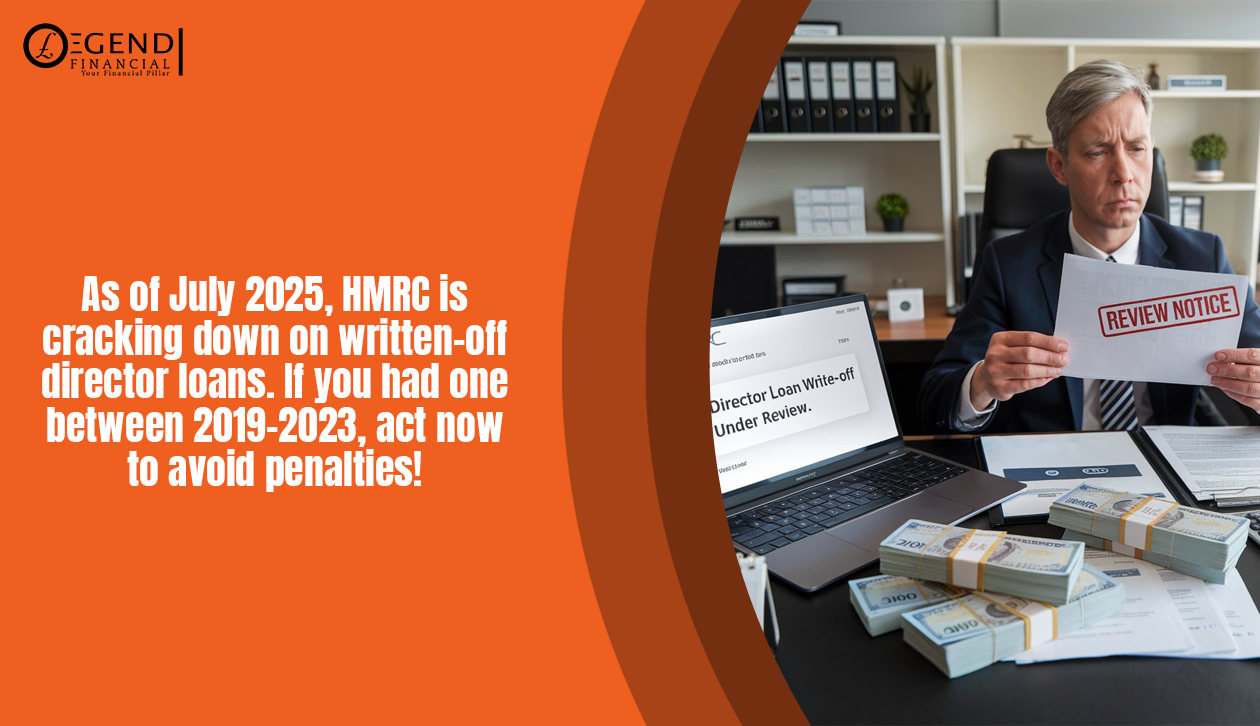HM Revenue & Customs (HMRC) has launched a new enforcement campaign aimed directly at company directors. If you are a director who had a loan released or written off between April 2019 and April 2023, you may soon receive what is known as a “nudge letter.” But make no mistake. This isn’t just a friendly reminder; it’s a red flag. And it’s time to act!

What’s Happening?
HMRC has identified a pattern of undeclared income linked to directors’ loans. These are cases where directors received money from their companies and either never repaid it or had the debt written off. Without declaring it on their Self-Assessment tax returns.
Now, HMRC is sending targeted letters urging directors to come clean. Their focus is on the personal tax liability of directors who may owe Income Tax and National Insurance Contributions (NICs) on these loans.
What Are Directors’ Loans and Why Is HMRC Watching?
A director’s loan is when a company’s director borrows money from his company that is not salary, dividend, or expense reimbursement.
There are two common scenarios now under scrutiny:
- Beneficial Loans: If your company loaned you money at little or no interest, that benefit is taxable. It should have been reported on a P11D form, and Class 1A NICs should have been paid.
- Released or Written-Off Loans: If you did not pay back the loan, and your company wrote it off, HMRC treats this as taxable income. Depending on your status and the company’s structure, it could be taxed either as earnings or as a dividend.
What’s at Stake for Directors?
The risks are far from minor. Here’s what one could face:
- Overdue Income Tax & NICs
- Interest on unpaid taxes dating back to the original due date
- Penalty charges ranging from 0% (with full voluntary disclosure) to 100% (for deliberate concealment)
- Extended HMRC Investigations into personal and corporate tax compliance
- Potential criminal prosecution or even director disqualification in severe cases
What About the Company?
Companies are not off the hook either. If your business is classed as a “close company” (controlled by five or fewer participators), and loans to directors go unpaid beyond nine months of year-end, it may trigger a Section 455 tax charge, a hefty 33.75%.
Although recoverable once the loan is repaid, the charge poses a serious cash flow risk and must be reported accurately.
What Should You Do Now?
Whether or not you have received a letter yet, now is the time to take proactive steps:
- Review all directors’ loans from April 2019 to April 2023
- Check whether any released or written-off loans were fully reported
- Pay any outstanding Income Tax, NICs, or Corporation Tax
- Respond to HMRC nudge letters promptly with professional support
- Disclose any errors voluntarily to minimize penalties
- Maintain clear, robust records for all director loan transactions
Why This Matters More Than Ever
This campaign is part of HMRC’s broader crackdown on under-reported income and tax avoidance schemes. In an era where financial transparency is non-negotiable, staying compliant is not just a legal obligation, it is smart business.
As a company director, your personal and professional reputations are tied together. A misstep here could cost you more than just money.
At Legend Financial, we help directors and businesses across the UK unpack complex tax issues, respond to HMRC, and avoid unnecessary penalties. If you have received a letter, or suspect you are at risk, do not delay!
📩 Contact our tax experts now for a confidential consultation.








